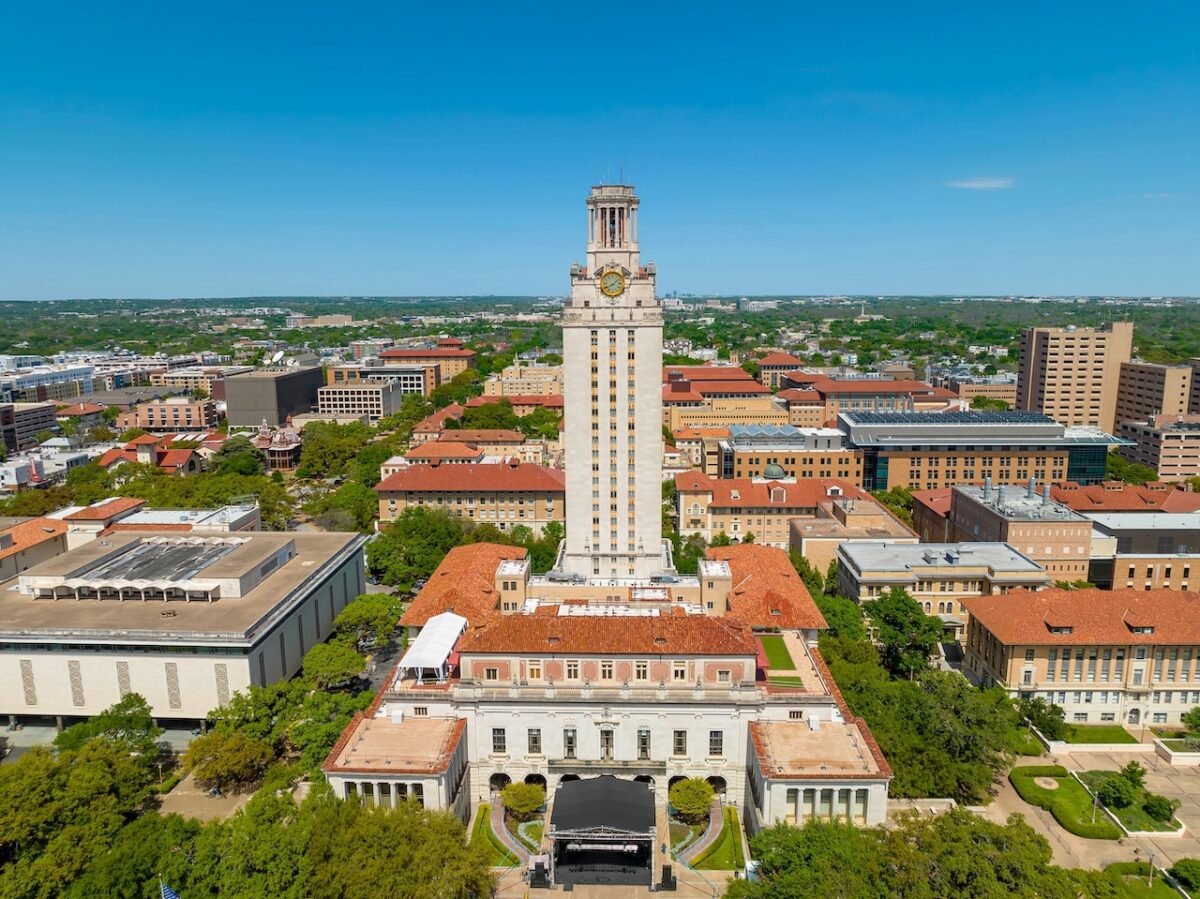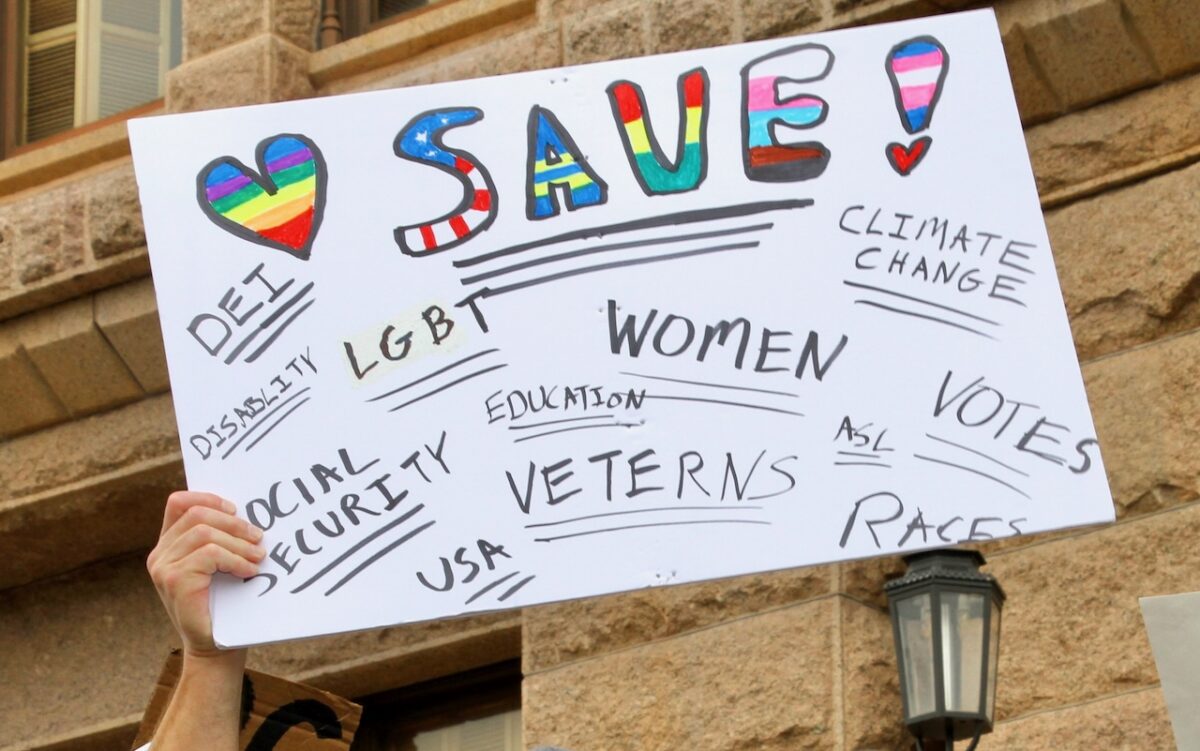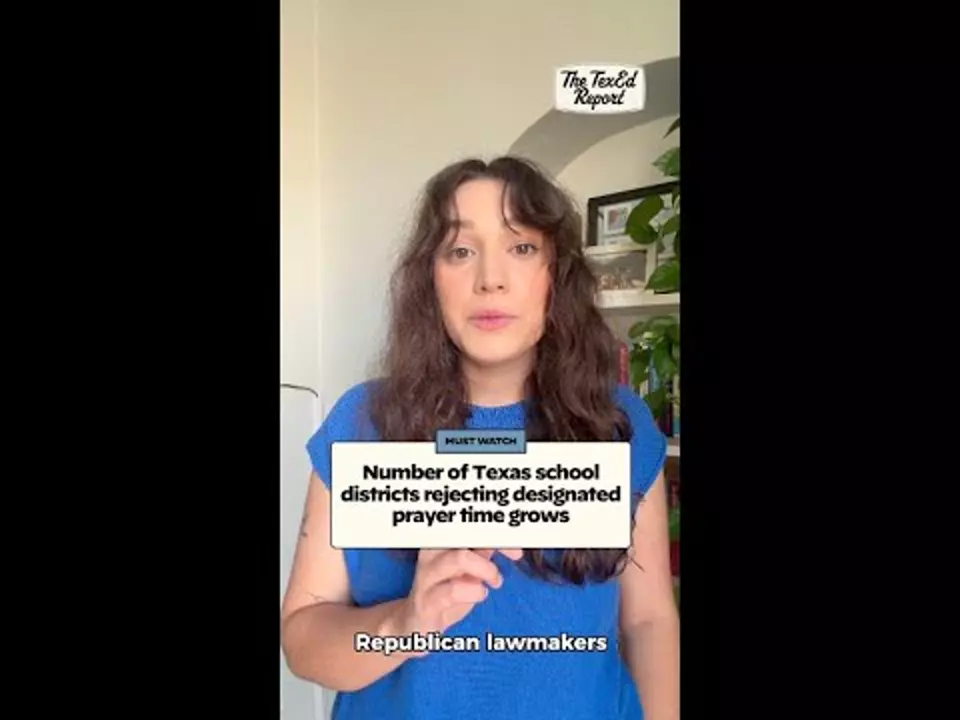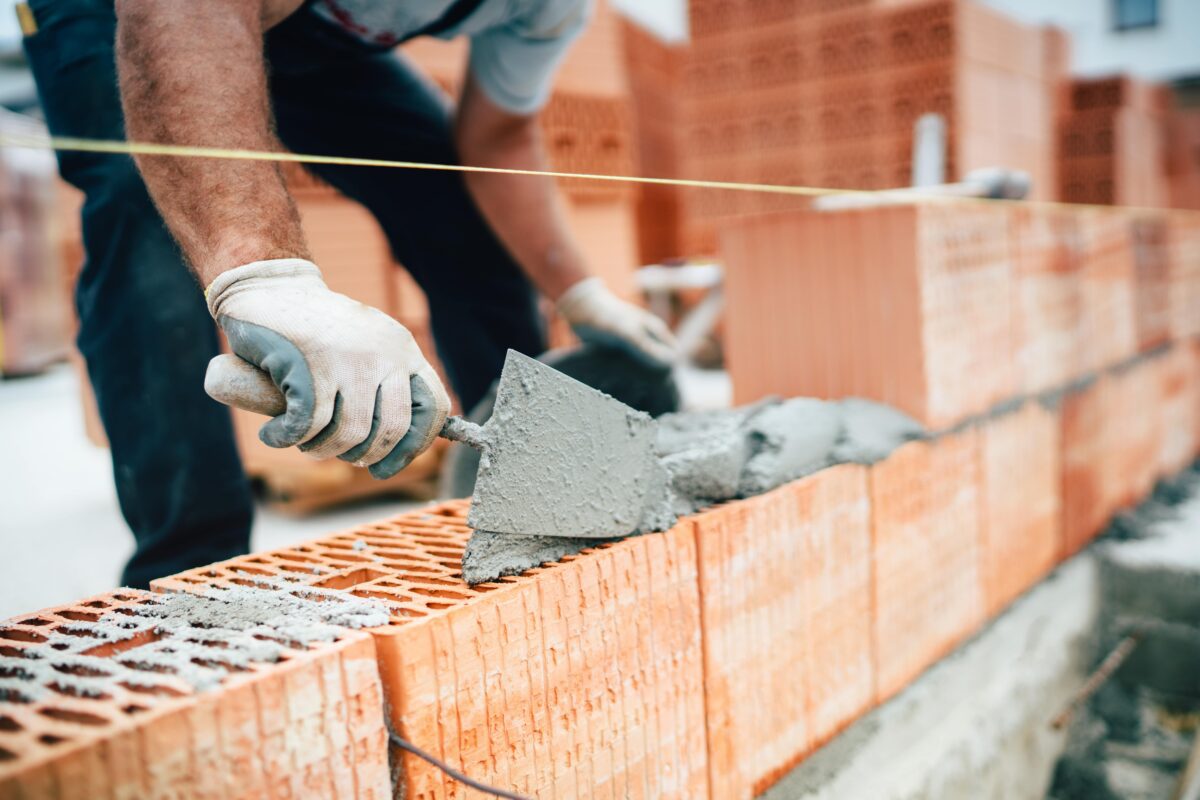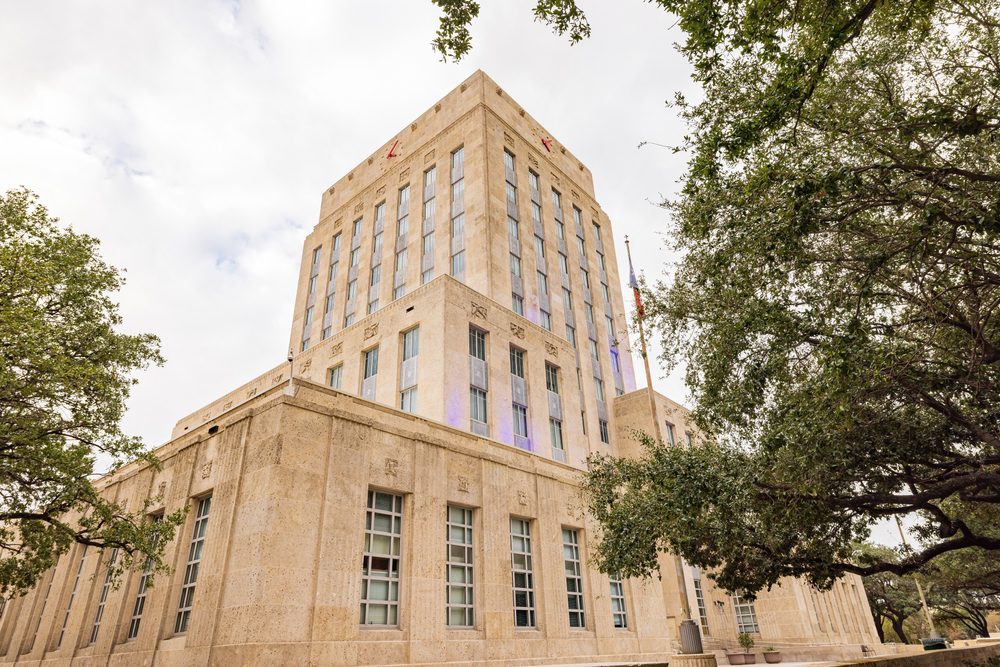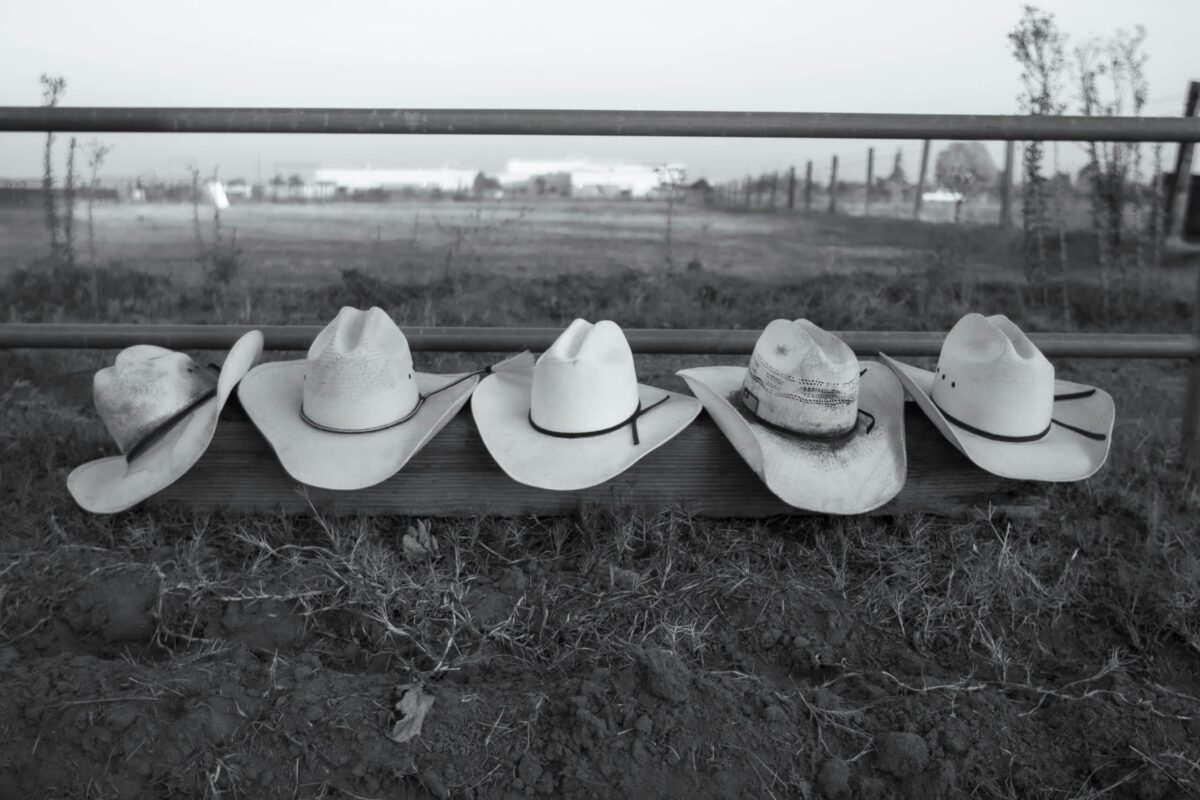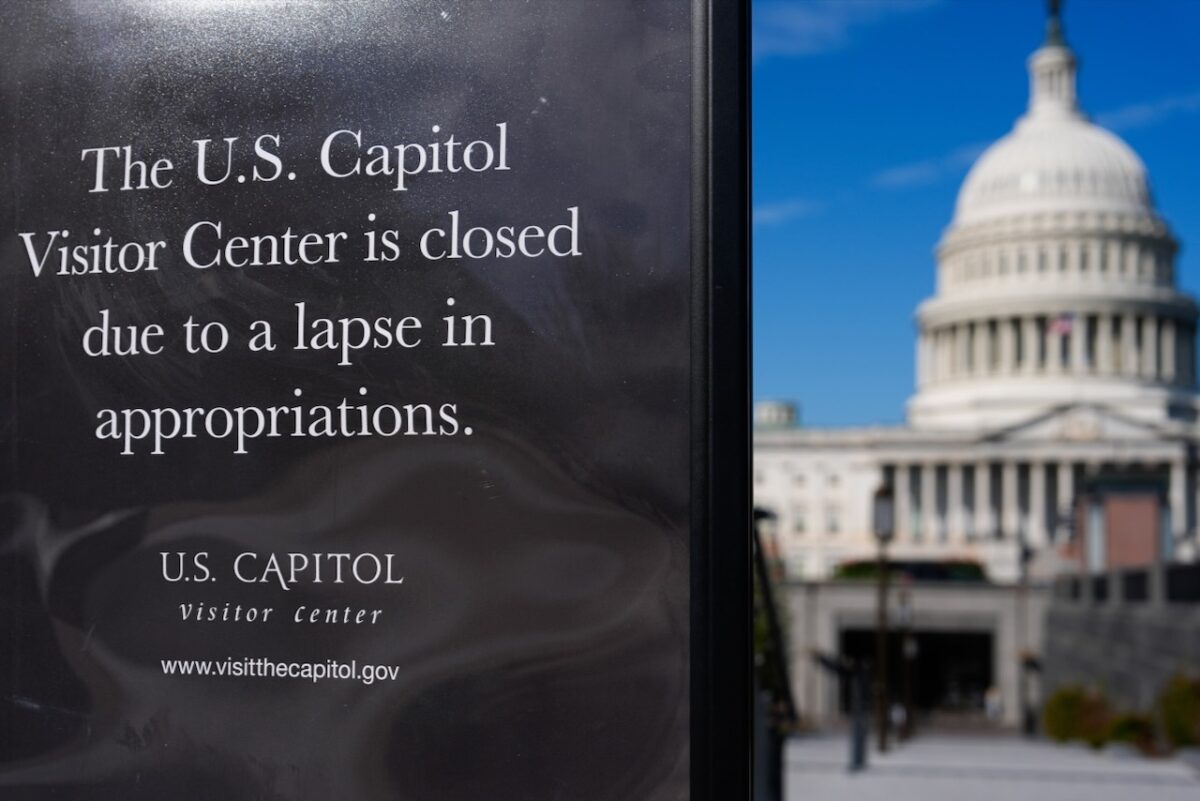
A sign announces that the US Capitol Visitor Center is closed on Wednesday, the first day of a partial government shutdown. (Photo by Julia Demaree Nikhinson/AP)
The federal government shutdown means nearly 250,000 Texans will work without getting paid while some services are slowed or closed.
The federal government shut down early Wednesday, meaning nearly 250,000 federal employees and members of the military in Texas won’t receive paychecks, and a chunk of the billions in federal funding earmarked for the state will be paused. Large swaths of the federal bureaucracy will slow down or stop.
The shutdown started at midnight on Wednesday as Congress and President Donald Trump couldn’t agree on legislation funding federal operations. The last government shutdown, which started in late 2018, lasted for 35 days. It’s the third shutdown Trump has presided over as president.
The shutdown’s impact on Texas could be severe.
The state has the third-largest federal workforce in the country, behind only California and Washington, DC. Many of those federal workers will be furloughed from their jobs, while others—including Transportation Security Administration employees at airports, caregivers at the US Department of Veterans Affairs, and agents with US Customs and Border Protection—will work but won’t be paid until the shutdown ends.
Advocates for federal employees blasted the shutdown.
“Federal workers across our state have already endured hiring freezes, RIFs, and cuts at offices like the Department of Defense, Department of Education, and every other public service job,” Texas AFL-CIO President Rick Levy said in a prepared statement. “It’s immoral and irresponsible.”
The federal shutdown also came on what’s supposed to be the first day of hearings in an El Paso federal courtroom over new US House districts drawn by Republican lawmakers. Gov. Greg Abbott signed the redistricting plan—blasted by critics as racial gerrymandering—into law on Aug. 29 and opponents quickly sued to block it.
The map dilutes the voting power of people of color in Austin, Dallas-Fort Worth, and Houston, and weakens two Democratic US House seats in South Texas. Republicans designed the map to help flip five US House seats to the GOP during the 2026 elections.
Federal courts typically cease operations during government shutdowns, but some district courts use funding reserves to stay open at least for a few days. The hearing in El Paso, which is scheduled to last nine days, is expected to proceed, according to the Austin American-Statesman.
The federal judiciary said Wednesday that it’s cobbled together funding to remain operational until Oct. 17.
While lawmakers are using the shutdown to score political points with supporters—and place blame—business leaders in Texas are concerned about the impact on the state’s economy.
“Texas’ economic momentum is stronger than ever before, with our (gross domestic product) growing faster than the U.S. as a whole this year,” Glenn Hamer, president and CEO of the conservative-leaning Texas Association of Business, said in a prepared statement. “A shutdown could blunt that momentum and stall federal investments and projects that are key to our state’s current and future economic growth.”
The impasse that led to the shutdown was over stopgap funding bills and healthcare.
Republicans want to extend federal spending—mostly at current levels—for seven weeks. Democrats want GOP lawmakers to reverse the Medicaid cuts in Trump’s budget bill that he signed into law in July, a measure that Texas Republicans helped push across the finish line, and agree to extend enhanced premium tax credits for the Affordable Care Act marketplace. The subsidies expire at the end of 2025 and consumers face premiums that will more than double without the subsidies, according to KFF.
The higher cost of Affordable Care Act healthcare plans will impact nearly 4 million Texans and could force nearly 800,000 people in the state to give up their health insurance, according to a Texas A&M University analysis.
“Republicans have created and manufactured a health care crisis starting right now. Everyone will suffer,” US Rep. Greg Casar (D-Austin) said Tuesday. “Think of your own family. What would you do if healthcare premiums doubled next year?”
The impacts of a government shutdown in Texas
During a shutdown, people will continue to receive Social Security payments; current Medicare, Medicaid, and disability insurance beneficiaries will continue to receive benefits; the US Postal Service will remain open; borrowers still have to make student loan payments; and Supplemental Nutrition Assistance Program benefits will continue at least through October.
But funding for the Special Supplemental Nutrition Program for Women, Infants, and Children (WIC), which provides food and immunization services to pregnant women and children under 5, isn’t assured. The state’s WIC program serves about 800,000 mothers and children each month, according to the Texas Tribune.
The 14 sites across the state managed by the National Park Service (NPS)—including Big Bend National Park and Guadalupe Mountains National Park—will remain open. But nearly two-thirds of NPS staff are furloughed during the shutdown and that will impact visitor services, according to Politico.
Support Our Cause
Thank you for taking the time to read our work. Before you go, we hope you'll consider supporting our values-driven journalism, which has always strived to make clear what's really at stake for Texans and our future.
Since day one, our goal here at COURIER Texas has always been to empower people across the state with fact-based news and information. We believe that when people are armed with knowledge about what's happening in their local, state, and federal governments—including who is working on their behalf and who is actively trying to block efforts aimed at improving the daily lives of Texas families—they will be inspired to become civically engaged.






